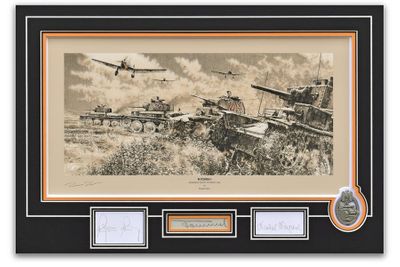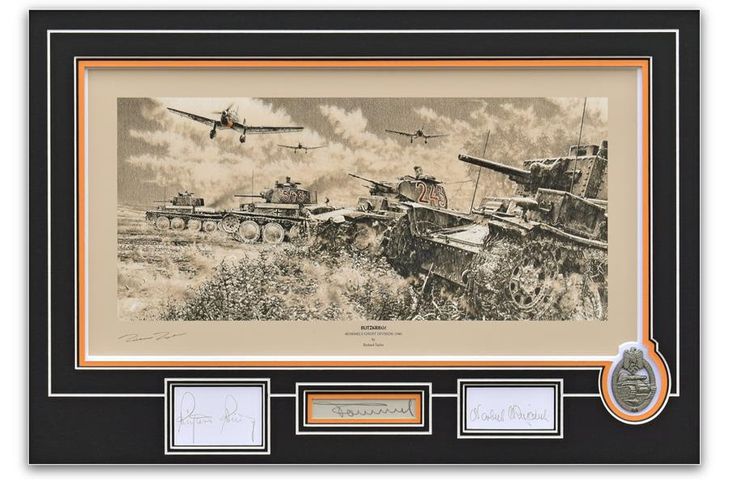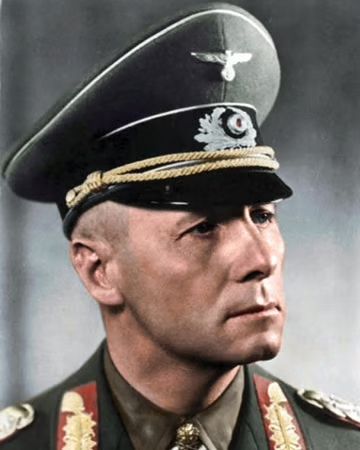
Blitzkreig! by Richard Taylor
 |

|
Due to the historical significance and small number of prints being offered, we expect this publication to be well-oversubscribed. Your order will be confirmed only upon verification of availability.
FIELD MARSHALL ERWIN ROMMEL
|

And on 10 May 1940 when Hitler's Panzer divisions smashed through Belgium, the Low Countries and into France, Erwin Rommel's 7th Panzer Division would become an outstanding example of Blitzkrieg tactics, advancing so fast that even the German Army headquarters sometimes lost track of what many were now calling Rommel's Ghost Division. Racing west, they'd overcome heavy French resistance along the Meuse, skilfully deflected a British counter-attack at Arras, captured the large French garrison city of Lille before reaching the Channel coast on 12 June where they proceeded to force the surrender of the entire British 51st Highland Division at Saint-Valery-en-Caux.
Yet Rommel wasn't finished; despite the withdrawal of the British Expeditionary Force from Dunkirk, other Allied troops were still being evacuated from Cherbourg, 150 miles to the west. On 17 June Rommel received orders to stop them. It took his division just twenty-four hours to reach the port in a lightning thrust graphically portrayed by Richard Taylor in his masterfully detailed drawing Blitzkrieg. Cherbourg surrendered the following day.
Rommel's reputation continued to grow as a renowned innovator of armoured tactics as he commanded the Afrika Corps in North Africa and was later instrumental in the German defence of Normandy prior to the Allied invasion on D-Day. In July 1944 he encouraged Hitler to surrender, but the German leader had discovered Rommel was plotting against him and offered the him the option of suicide, a state funeral and protection for his family, or face trial for high treason. Erwin Rommel took the honourable decision.
Faithfully reproduced as high quality giclée fine art prints on archival paper, the historical importance of this restricted edition is highlighted by the inclusion of the extremely RARE and hard-to-come-by ORIGINAL autograph of Erwin Rommel himself which has taken a number of years to source and collect. Alongside is a museum-quality reproduction Panzer Assault Badge and the original signatures of a further two German veterans who served with Panzer Divisions in Europe:
Signatures:















